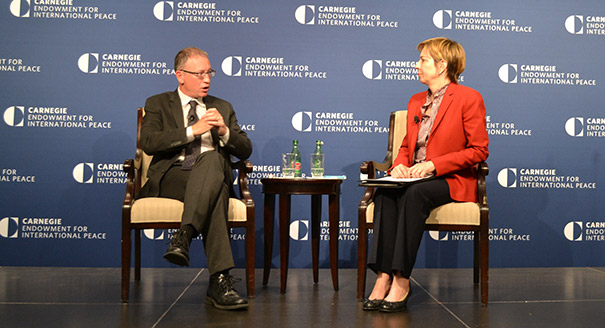Registration
You will receive an email confirming your registration.
Less than twenty-four months after the hope-filled Arab uprising, the popular movement had morphed into a dystopia of resurgent dictators, failed states, and civil wars. Marc Lynch’s new book, The New Arab Wars, is a profound illumination of the causes of this nightmare. It details the costs of the poor choices made by regional actors, delivers a scathing analysis of Western misreading of the conflict, and questions international interference that has stoked the violence.
Carnegie hosted a discussion of the book’s main findings with Marc Lynch, moderated by Michele Dunne. A light lunch was provided from 12:00 to 12:30 p.m. The discussion began at 12:30 p.m., with an introduction by Carnegie President William J. Burns.
Following the discussion, copies of the book were available for sale with signing by the author.
Marc Lynch
Marc Lynch is a nonresident senior associate in the Middle East Program at the Carnegie Endowment for International Peace.
William J. Burns
William J. Burns is president of the Carnegie Endowment for International Peace.
Michele Dunne
Michele Dunne is the director and a senior associate in Carnegie’s Middle East Program.
